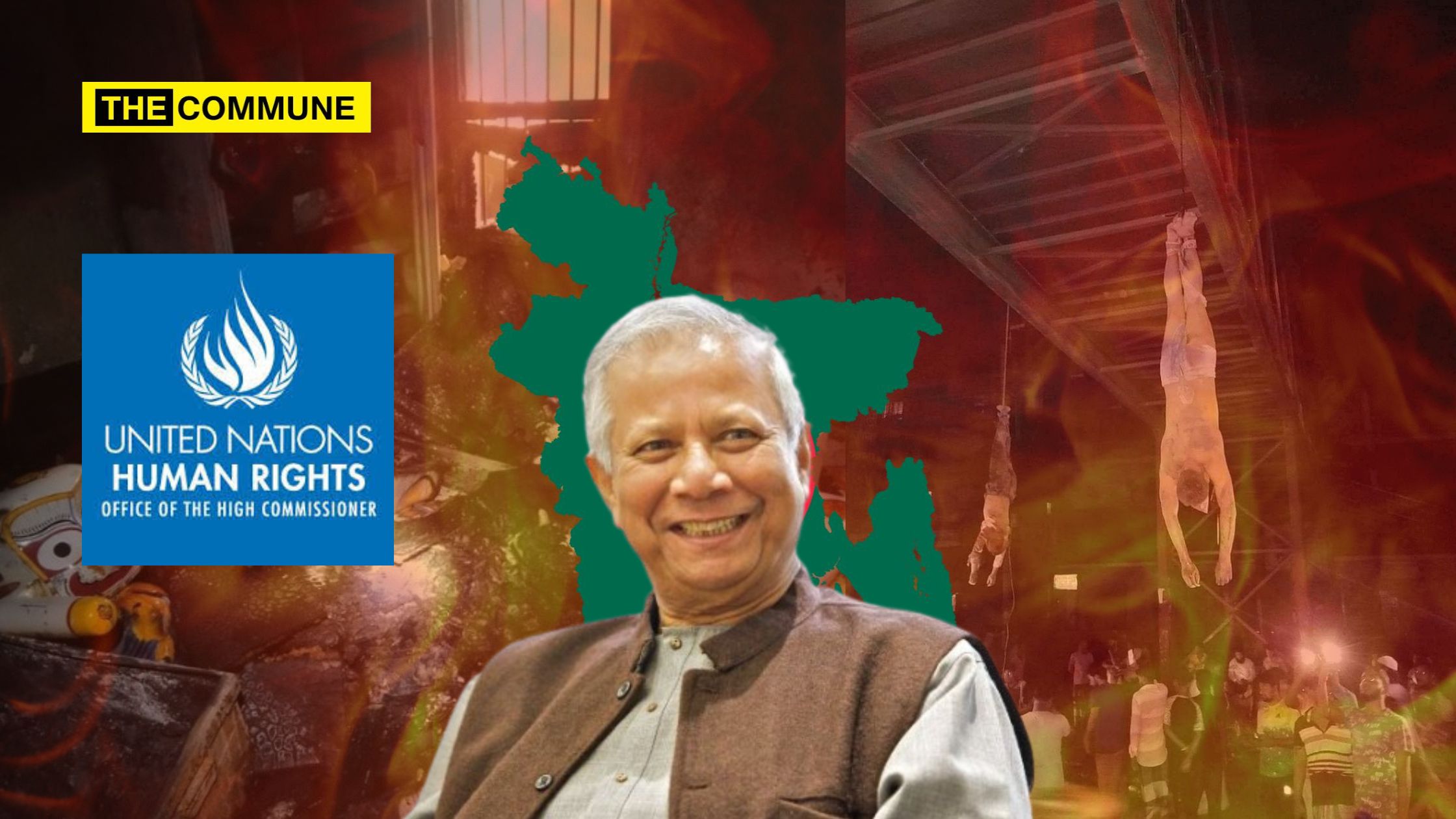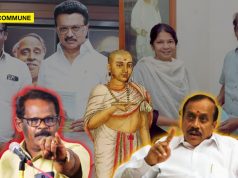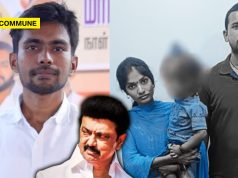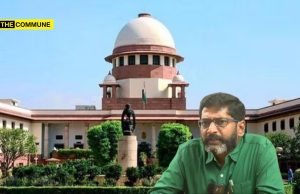
The United Nations High Commissioner for Human Rights (OHCHR) has exposed the human rights violations against vulnerable Hindu minorities in Bangladesh on 12 February 2025 with its latest report, titled Human Rights Violations and Abuses related to the Protests of July and August 2024 in Bangladesh, draws attention to atrocities committed amid the country’s political turmoil, particularly under the interim government of Muhammad Yunus, who has been accused of aligning with Islamist forces.
The OHCHR report highlights the severe violence faced by Hindus in Bangladesh, including attacks on homes, businesses, and places of worship. It particularly notes incidents of arson, destruction, and physical assaults against Hindu individuals, with some attacks reportedly tied to political or religious motivations. The report also outlines the inadequate response from the Bangladeshi authorities, which failed to prevent these crimes.
In one instance, it details violent attacks on Hindu and Indigenous communities in the Chittagong Hill Tracts, where Buddhist and Hindu homes were set on fire, and temples were destroyed. The violence was particularly intense in regions perceived to be sympathetic to the ruling Awami League. The report mentions how Hindu business owners and residents in these areas suffered extensive property damage, including the looting of shops and destruction of religious sites.
The report further discusses the systematic nature of these attacks, which targeted Hindu communities in several districts, including Thakurgaon, Lalmonirhat, and Dinajpur. It also highlights how Hindu educators and leaders were coerced into resigning from their positions due to threats of violence.
The OHCHR’s findings shed light on the rising attacks on religious minorities, especially as revenge violence linked to political events escalated. The violence was often perpetrated by local supporters of opposition parties such as the BNP and Jamaat-e-Islami, as well as Islamic hardliners.
The OHCHR report on Bangladesh reveals troubling findings that expose the severe attacks against the Hindu community, which were downplayed by the interim government of Muhammad Yunus. On page 52 of the report, it highlights the violent mobs involved in revenge violence, including killings, targeting police and Awami League officials, with Hindus also subjected to human rights violations such as the burning of homes and attacks on religious sites. The report criticized the administration for its inadequate response in preventing these abuses, especially by non-state actors like violent Muslim mobs.
Page 55 addresses attacks on Hindu and Indigenous communities in the Chittagong Hill Tracts (CHT). In September 2024, OpIndia reported on violent Muslim mobs attacking Buddhist Chakma and Hindu Tripuri communities in the Chittagong Division, where more than 200 shops and homes were set ablaze. The mob also attacked a Buddhist temple, committed arson, and killed multiple people.
The OHCHR report further references widespread destruction of Hindu homes, businesses, and places of worship in areas such as Thakurgaon, Lalmonirhat, Dinajpur, Sylhet, Khulna, and Rangpur. The destruction was particularly severe in regions thought to support the Awami League, with Hindus often being unfairly associated with this political faction. On page 56, it notes how Hindu headmasters and teachers were pressured into resigning from their positions. Hindu business owners and homeowners reported property destruction, arson, and threats, with insufficient police response, indicating a systemic lack of accountability.
The report also details a mass exodus of Hindus from villages in Thakurgaon, where around 3,000-4,000 individuals fled to the India-Bangladesh border to escape violence, only to be turned away by India’s Border Security Force. Affected families reported feeling insecure and facing heavy financial losses, including the destruction of essential goods, livestock, and businesses.
National Security Intelligence (NSI) information provided to the OHCHR indicated 37 violent attacks on minorities between 5-15 August 2024. These attacks spanned multiple districts, with most involving the looting, vandalism, or burning of homes and businesses. Four attacks targeted Hindu temples, and victims were physically assaulted, including one woman whose throat was slit. The report also identified political motives behind these attacks, with some perpetrators linked to the Bangladesh Nationalist Party (BNP) and Jamaat-e-Islami. Many of the attacks occurred during celebrations of the ouster of former Prime Minister Sheikh Hasina.
On page 62, the report points out the responsibility of local BNP and Jamaat-e-Islami supporters in these human rights violations, particularly during revenge attacks against the Hindu community. It is noted that Yunus has been advancing the agenda of the BNP, which is a rival of Hasina’s party.
In response to the OHCHR report, the Bangladesh Hindu Buddhist Christian Unity Council (BHBCUC) issued a statement urging an exhaustive investigation into the communal violence following Hasina’s removal. The BHBCUC thanked the OHCHR for acknowledging the attacks but criticized the report for not covering the full extent of the violence and systemic discrimination against minorities. The council also called on Yunus to revoke immunity granted to student protests that led to widespread chaos between 15 July and 8 August 2024.
In response to the report’s release, the Bangladesh Hindu Buddhist Christian Unity Council (BHBCUC) issued a statement condemning the violence and calling for a full investigation into the attacks on the Hindu community. The council criticized the OHCHR report for failing to capture the full scope of the violence and discrimination faced by minorities in Bangladesh, particularly during the period following the ousting of Prime Minister Sheikh Hasina.
Reports have surfaced that Hindu minorities in Bangladesh are being forced to join groups like Jamaat-e-Islami under coercion, while Hindu religious ceremonies, including Durga Puja, have been violently disrupted. Incidents of idol vandalism, attacks on Hindu temples, and threats against Hindu individuals have become increasingly common.
The ongoing persecution of Hindus in Bangladesh, as detailed by the OHCHR report and other human rights organizations, underscores the systemic nature of religious intolerance and the failure of the current government to protect religious minorities from targeted violence.
(With inputs from OpIndia)
Subscribe to our channels on Telegram, WhatsApp, and Instagram and get the best stories of the day delivered to you personally.




